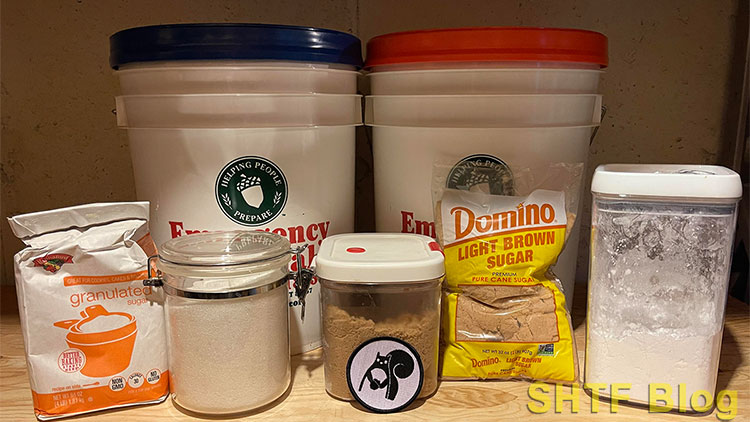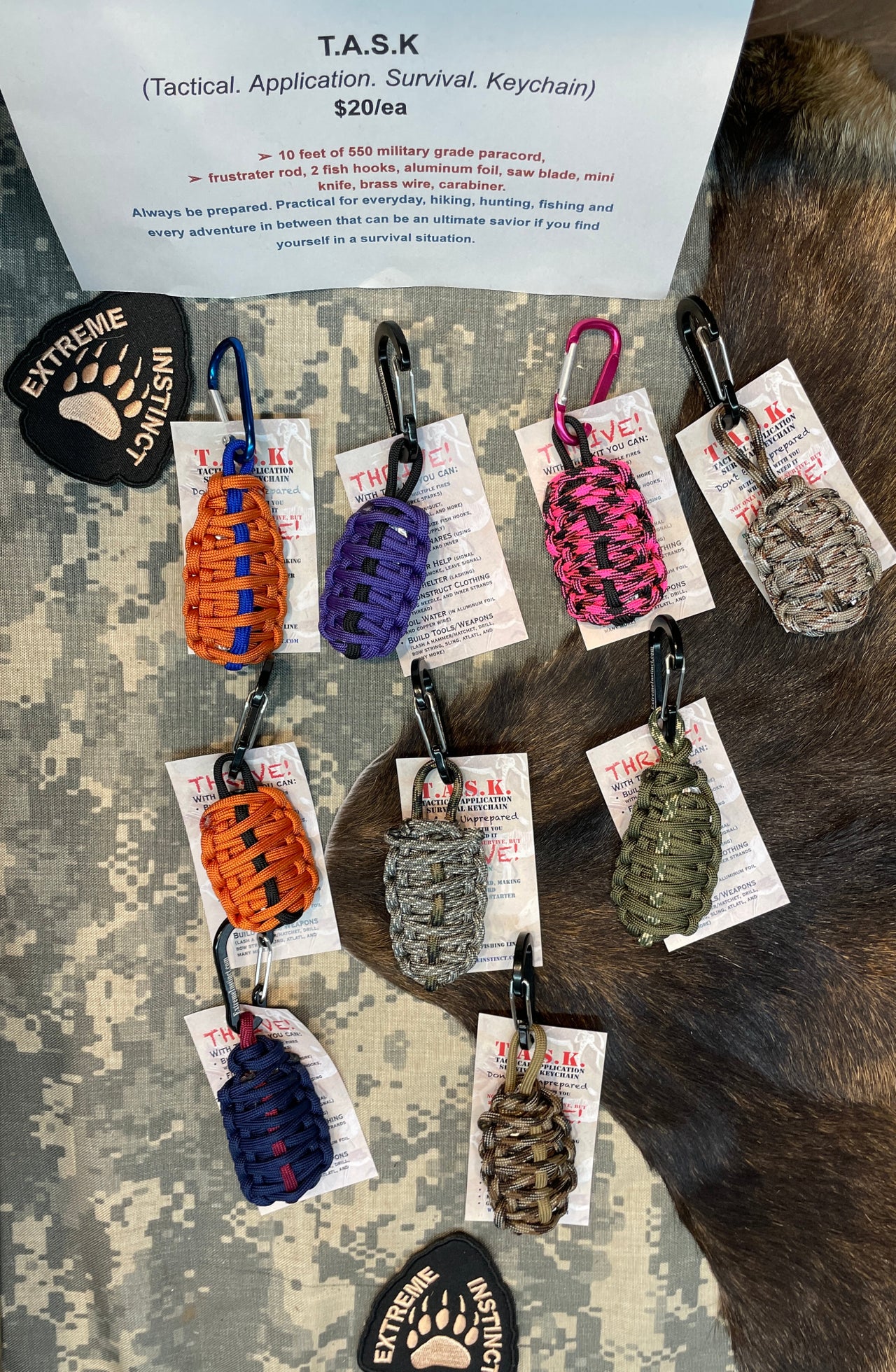
Preparing to face any disaster is essential. It can help you plan for unexpected events, such as a power outage or tornado that knocks out water and power. Prepare yourself for any situation by having the right supplies. The season with more natural disasters is summer. Tornadoes are capable of destroying homes, shelter, or power.
Tools
It is not difficult to find a list of prepper tools. However, there are many essential tools that all people should have in case of an emergency. You will need a knife, a saw, a fixed-blade survival knife, and / or flint knife. For hikers and campers, a shovel is an important tool. Hammers and screws are other standard tools that you'll need in a survival situation. For moving large items, a wheelbarrow is an additional useful tool. Two tires on a wheelbarrow are better than one, and they are easier to maneuver.
Food
There are many essential food items that should be included in a prepper’s pantry. Grains are one the most versatile and nutritious food items. They are also inexpensive and store well. A prepper's pantry must include beans. These beans are a good source of fiber and protein. Beans can be used as animal feed.

Water
Preppers should have water on their list. One of these items is a water filter, which can cleanse a large amount of water. Some of the most popular water filters are the Big Berkey and the Lifestraw. The Big Berkey has a reusable filter that can clean over 6,000 gallons of water, and a single filter can filter about a thousand liters. These water filters come in a convenient and lightweight design.
Medicine
It's important to have the right medicines in case of an emergency. This includes medicines for regulating the body and for treating illnesses. The list should contain cold medicine, anti-biotics, and vitamins.
Duct tape
The versatile survival tool of duct tape comes in handy for emergency situations. It can be used to repair just about any item, including tents. It can also be used as a wrap for a plastic water bottle, or a sling for a broken ankle.
Books
A list of books on disaster survival should be a good choice for any prepper. This can be accomplished in several ways. One option is to learn how to disappear, which will make it possible to avoid attacks and threats. You can also learn to conserve energy.

Games
A list of games to play can include anything relaxing or mind-bending. Some are for relaxation while others are intended to keep you alive and help you stay healthy. Some require you to use crude hammers and edible plants.
FAQ
What are the essential skills required to survive in the wild?
If you live off the soil, you must learn how to build a fire. It's more than lighting a match. You must also learn how to make a fire with friction and flint. You also need to know how to avoid getting burned by the flames.
You'll need to know how to build shelter from natural materials, such as trees, grasses, leaves, etc. For warmth at night you will need to learn how to best use these materials. Finally, you will need to know how many gallons of water you require to survive.
Other Survival Skills
While these things can help you live longer, they won't be as important as learning how to light a flame. While you may be able to eat many different species of animals and plants, you won’t be able cook them if it isn’t possible to light a flame.
It is also important to understand how and where to find food. This knowledge is crucial to avoid becoming sick or starving.
What is the most crucial survival tool for you if you're lost?
The compass will tell you which direction north is. It also tells us how far we've traveled since our beginning point. If you're traveling somewhere with mountains, the compass may not always show you where you need to go. However, if you're in a flat area, the compass should be able to show you the way.
If you don’t have a map or compass, an object like a stone or tree could be used as a reference. Even though you still need a landmark to help you orient yourself, it's a good idea to have one.
Why is it important to have basic survival skills?
It may not be possible to have food and water at all times, but being prepared can help you live longer.
You have to learn how take care of yourself, and others. If you don't know how to do this, you won't last long when faced with a crisis.
If you plan to go into the wilderness and need food and shelter, you should learn how to make fires and cook.
These are skills everyone needs to have. These skills will help you stay safe and healthy during a camping trip.
What is the first thing you should do in a survival situation?
In an emergency situation, you must assess the situation first. It is important to assess the situation and know where you are.
You also need to know what you can expect from your environment. For instance, you might not be in a position to communicate with anyone if you are far from civilization.
If you don’t know what you are doing, you should start learning as quickly as you can.
If you're in any immediate danger, it is best to get medical attention immediately. However, if you are safe, then you might want to take some time to gather information and figure out what happened.
What can you do to survive in an emergency situation?
It's impossible to spend too much time thinking about what you should say next. It is important to be ready for any eventuality. It is important to be able to quickly react to any unexpected problems.
You should also be prepared to think outside the box if you're in a difficult situation.
In a survival situation you might face the following problems:
-
Finding yourself in remote places
-
Getting lost
-
Limited food supply
-
Running low on water
-
Facing hostile people
-
Face to face with wild animals
-
Finding shelter
-
Predators can be defeated
-
Setting fire to
-
Making use of tools
-
Building shelters
-
Hunting
-
* Fishing
How can I find the right knife for me?
It is not easy to choose the right knife for you. There are so numerous brands out there that claim they are the best.
Which one is the best? How do you choose?
Consider first what tasks you are going to be performing with your knife.
Do you plan to cut wood, skin or chop animals, or slice bread?
Is the knife meant for hunting or fishing? Is it intended for camping cooking, or kitchen cutting?
Are you going to use it to open bottles or cans? Are you going to open packages or boxes?
Are you able to carry heavy loads with your knife?
Consider cleaning it after each use. Do you plan to wash it frequently?
Is it necessary to keep its edge over time?
Why are survival skills essential?
Survival skills are essential for survival. They include the ability to build shelter, protect yourself from danger, and hunt, fish, as well as how to catch food. These skills are critical no matter where one lives, but they are especially important when travelling alone or in remote regions.
You can also learn survival skills such as self-defense techniques, navigation, communication and wilderness medicine. They are essential life-saving tools that should always be available before venturing into unknown territory.
These skills are not the only ones you should have. There are many valuable skills that can be useful when you're away from home. You might want to learn techniques for climbing mountains if you're planning on going on vacation. Or, if camping in the desert is your plan, learn how you can survive in extreme temperatures. There are many ways you can prepare for any situation. So don't be afraid of trying new skills.
Statistics
- The downside to this type of shelter is that it does not generally offer 360 degrees of protection and unless you are diligent in your build or have some kind of tarp or trash bags, it will likely not be very resistant to water. (hiconsumption.com)
- Not only does it kill up to 99.9% of all waterborne bacteria and parasites, but it will filter up to 1,000 liters of water without the use of chemicals. (hiconsumption.com)
- so you can be 100 percent hands-free, and there's less chance you'll put your torch down and lose it. (nymag.com)
- We know you're not always going to be 100% prepared for the situations that befall you, but you can still try and do your best to mitigate the worst circumstances by preparing for a number of contingencies. (hiconsumption.com)
External Links
How To
How to Find Edible Plants and Animals During Emergencies
For emergency situations, edible animals and plants are vital food sources. Because they provide energy and nutrients that are not available in normal food, you should include them in your emergency kit. These can be used to make medicine and cosmetics.
You must know where the plants are located and what type of climate they like. This knowledge will allow you to identify them quickly. However, it's difficult to learn everything about every plant and animal species at once. Fortunately, some general rules apply to most plants and animals.
For instance, if you notice a plant growing near water you can assume it loves moist soil. Shiny leaves indicate that the plant was recently watered. If you find ants around a flower, it means that it has provided nectar for the pollinators. These simple observations could save you precious time in finding useful animals or plants for emergencies.
Books written by experts in botany and Zoology can help you to learn more about edible animals and plants. Talk to rural people and watch documentaries. Learning about plants and animals isn't hard; just follow the steps below:
-
Look out for animals or plants that live near water.
-
Be aware of the growth patterns of animals and plants.
-
Learn more about the natural habitats and habits of animals and plants. For example, you can look for places with a particular soil type, climate, or vegetation.
-
Identify the parts of plants and animals that you can eat.
-
Learn how to cook and prepare animals and plants.
-
So that you can get to know wild animals and plants better, try eating them.
-
Always be cautious when collecting wild plants or animals. Don't pick endangered species.
-
All wild animals and plants should be properly stored. Keep them dry and cool and away from direct sunlight.
-
Always wash your hands after handling wild plants and animals.
-
Before eating fruits and veggies, wash them.
-
Avoid eating raw meat and fish unless you are sure it's safe.